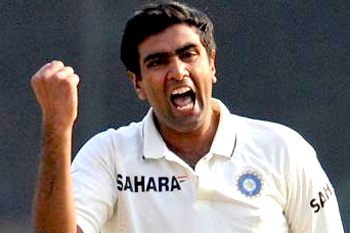Jul 2: Cricket's biggest names, most of whom could hear only stories of Sir Everton Weekes' exploits from the bygone era, on Thursday remembered the "great" batsman and a "greater human being" in glowing tributes after he died aged 95.
Weekes, who formed the famous three 'Ws' of West Indies cricket alongside Clyde Walcott and Frank Worrell as part of a formidable batting lineup for more than a decade, died on Wednesday.
His death left the cricket world in a state of mourning.
"As one of the remarkable 'Three Ws', along with Sir Clyde Walcott and Sir Frank Worrell, who together struck 39 Test centuries, he played an important hand in a period that marked the rising dominance of West Indies cricket," the ICC said in its obit.
The 1925 Barbados-born Weekes made his Test debut against England in 1948.
"On behalf of CWI I want to publicly express our deepest sympathy to the family of this remarkable Iconic sportsman and gentleman, who passed away earlier today," Cricket West Indies president Ricky Skerritt said in a release.
"I never had the opportunity to see Sir Everton bat, but I had the opportunity to get to know him a little in his later years. I learned about his incredible career by reading about him and looking at old videos when I could.
"His performance stats were excellent as he set tremendously high standards for his time."
In his career, Weekes played 48 Test matches and made 4,455 runs at an average of 58.61 per innings. That included a world-record five consecutive centuries in 1948 — scores of 141 against England in Jamaica, followed by knocks of 128, 194, 162 and 101 in India. In his next innings in Madras, he made 90 when he was controversially run out.
Skerritt added, "... Sir Everton was, therefore, a most amazing pioneer in West Indies cricket; a gentleman and quite simply a wonderful human being."
The modern-day cricketers also mourned his death and paid moving tributes.
Former India captain Anil Kumble tweeted, "Saddened to hear about the passing of WI legend Sir. Everton Weekes. Had met him during the ICC conference in Barbados. He remembered a conversation we had during his time as a match referee. Condolences to his family and friends."
Kumble's former India teammate VVS Laxman wrote, "Heard about the passing away of West Indies legend, Sir Everton Weekes. He was one of the greats of the game. My condolences to his family and loved ones."
Mike Atherton, the opener who led England in the 1990s, was also disappointed to know of the legend's passing away.
"Very sad to learn of the passing of Sir Everton Weekes. A humble man who wore his greatness lightly."
Former West Indies pacer Ian Bishop said, "I had the great privilege of spending time in the company of Sir Everton on several occasions over the past 2 decades. Never once did I leave his presence without feeling a sense (of) warmth, cheerfulness & having learnt something rich & endearing each time. A truly great human being. The Marylebone Cricket Club said in a statement: "Everyone at MCC and Lord's are saddened at the news of Sir Everton Weekes' passing,"
"He will forever be remembered as one of the West Indies' finest cricketers."
Former India player and current coach Ravi Shastri said, "Saddened by passing away of Sir Everton Weekes who was the last of the famous 'Three Ws'. A true humble great of the game. My thoughts and prayers are with Sir Weekes' family and fans in this hour of grief. RIP Sir Folded hands."
All three -- Walcott and Worrell, Weekes -- were born within a couple of miles of one another - within 18 months in Barbados between August 1924 and January 1926, and all made their Test debuts within three weeks in early 1948.
Worrell died in 1967 and Walcott in 2006.
Weekes' average of 58.61 runs places him along with George Headley in the top 10 Test averages of all time.
Darren Sammy, who captained West Indies few years ago, took to Twitter and wrote, "We lost a legend today. Sir Everton Weekes is part of @windiescricket great history and legacy. He also was a great human being. Condolences goes out to his family. May he Rest In Peace."
 New Delhi, Aug 13: India offspinner R Ashwin will receive the prestigious Arjuna Award, thus becoming the 46th Indian cricketer to receive the honour which was instituted in 1961 by the Indian government to recognise outstanding achievement in national sport.
New Delhi, Aug 13: India offspinner R Ashwin will receive the prestigious Arjuna Award, thus becoming the 46th Indian cricketer to receive the honour which was instituted in 1961 by the Indian government to recognise outstanding achievement in national sport.




Comments
Add new comment